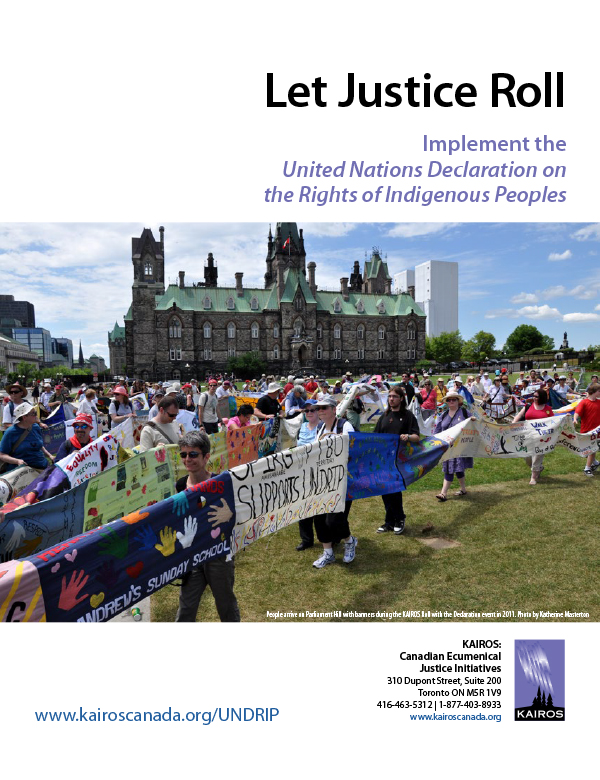Free, prior and informed consent (FPIC) is an inherent right of Indigenous peoples and helps ensure their survival, dignity and well-being. The United Nations Declaration on the Rights of Indigenous Peoples affirms FPIC and provides a new roadmap for interactions between nation states and Indigenous peoples.
So, what is FPIC all about?
- It is about building good relations by creating a starting point of mutual respect.
- It is about Indigenous peoples’ right to self-determination.
- It is about re-thinking the way we interact as Indigenous and non-Indigenous peoples.
- It is about reducing conflict by giving those affected an equal voice before conflict-creating decisions are made.
- It is about dialogue and understanding.
- It is about ensuring Indigenous communities benefit from activities carried out on their lands.
- It is about mitigating environmental and social impacts on Indigenous communities through the highest standard of precaution in any decision that could affect Indigenous territories.
- It is about acknowledging the history of the land and Indigenous peoples’ relationship to it, as well as the historical wrongs of colonization.
The UN Special Rapporteur on the Rights of Indigenous Peoples made an official visit to Canada in 2013 and highlighted the need to respect FPIC in all relations with Indigenous peoples, cautioning that “as a general rule resource extraction should not occur on lands subject to aboriginal claims without … the free, prior and informed consent of the aboriginal peoples concerned.”
Canada formally endorsed the Declaration in November 2010, despite having voted against it three years earlier. When Canada adopted the Declaration, the Department of Aboriginal Affairs played down its legal status stating: “The Declaration is an aspirational document which speaks to the individual and collective rights of Indigenous peoples … the Declaration is a non-legally binding document that does not reflect customary international law nor change Canadian laws.”
However, several Canadian lawyers note that while the Declaration is not binding in the way that treaties are, it does have legal implications:
- Canadian courts may use the Declaration to interpret Canadian law.
- Treaty bodies may use it to interpret international human rights instruments.
- The Declaration reflects existing international law.
Adopted by the UN General Assembly in 2007, the Declaration resulted from over 20 years of efforts by Indigenous peoples and their supporters to apply human rights law to the particular situation of Indigenous peoples. It has been observed that the way the Declaration was created is emblematic of how it should be implemented – with full inclusion and participation of Indigenous peoples.
Key Resources
- KAIROS Fact Sheet on FPIC
- FPIC Blog and News
- Take Action – FPIC Petition to the Prime Minister
- Take Action – Resource Extraction and the Open for Justice campaign

